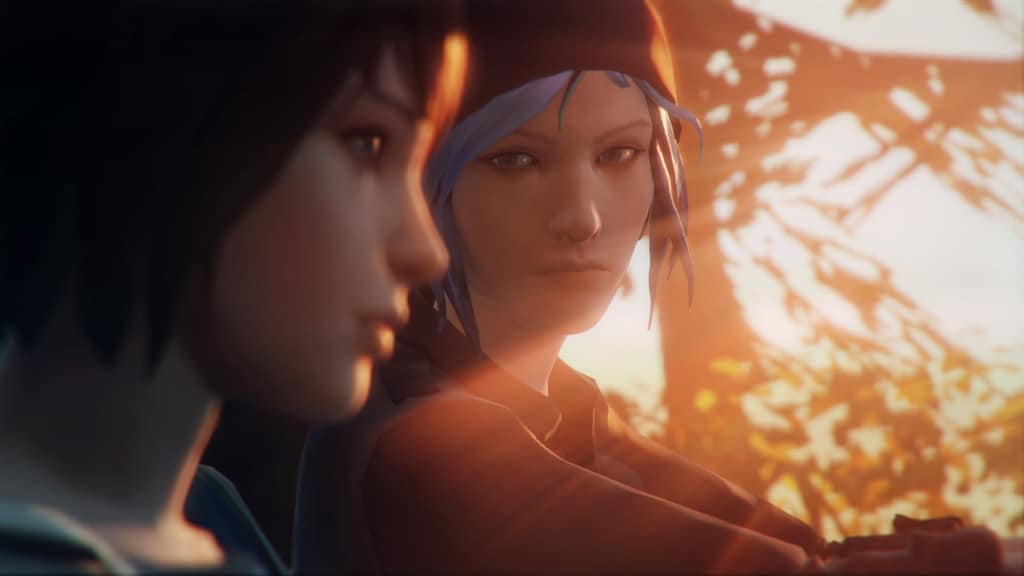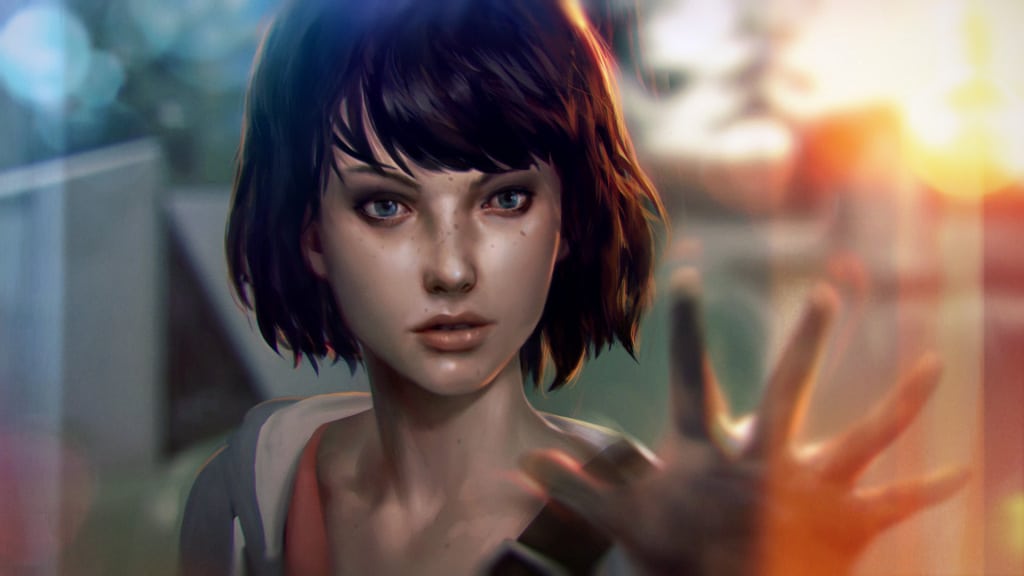Platforms PC, PS3, PS4, Xbox 360, Xbox One
Developer Dontnod Entertainment Publisher Square Enix
Genre Point and Click Adventure Platform Played On PC
From the start, Dontnod Entertainment’s episodic adventure Life is Strange is, well, a little strange. As “Episode 1 – Chrysalis” begins, the player takes control of Max Caulfield as she explores the area around a foreboding lighthouse right in the middle of a massive storm. Thankfully, Max snaps out of it in time to avoid any real harm and comes back to her senses in her photography class (which she is utterly unprepared for). Freaked out, she makes a beeline for the bathroom and her day gets even weirder when she discovers she can travel in time. From there, typical teen drama collides with time travel, a combination which results in a quirky and unique narrative.
Max’s newly discovered ability allows her to “rewind” time, changing details of a scenario in whatever way she wishes. Many recent adventure and roleplaying games allow players to make choices that directly impact the narrative, but Life is Strange puts a new spin on the concept by allowing them to actually play out more than one option. Feel like putting the resident mean girl in her place? Go ahead, you can always rewind and try and make her feel better if you have a guilty conscience. Before you get too excited though, Max’s ability does have limits; she can only rewind back a set amount of time, and once a scene is over those choices are set in stone. The consequences of her choices are not always immediately apparent, either. You are allowed to investigate each path, but only commit to one. This ability establishes a sense of control in what is generally a fairly linear type of game.

In true teen fashion, Max will almost always second guess herself. The first time I made a major decision, she wondered to herself if she had done the right thing. Thinking this was the game’s way of saying, “Hey you did the wrong thing,” I had Max rewind and choose the other option. She second guessed that one too. This uncertainty caught my attention almost more than the rewind mechanic itself. Even in games where player choice has a major impact, there is often a sense of the game leading you down a specific path. Not only does Life is Strange avoid indicating a “correct” choice, but it captures the uncertainty and indecision that comes along with growing up.
As Max makes her way through her exceedingly weird day, she encounters a relatively diverse student body. Despite the campy teen dialogue and occasionally cringe-worthy slang, Life is Strange does well with its characterization. There are the typical rich mean kids, of course, but a short walk around Blackwell Academy results in encounters with students and teachers of diverse skin colors and sizes. In a the current climate of the gaming world, that sort of diversity is more important than ever. The characters also manage to, in just a few interactions, feel fairly realistic (if a little archetypal). Though the voice work occasionally seems a little lacking, I found myself really caring about Max, curious about the mysteriously missing Rachel Amber, and decidedly creeped out by the sketchy overzealous security guard.
The soundtrack and graphics style also added to the richness of the world. When Max puts on her headphones or starts up a stereo, the player is listening to her music library. When she examines a photo or poster, the player gets a close up of the watercolor style graphics. These small touches serve to create an atmosphere that is closer to a quirky indie movie than an adventure game, but something fishy is definitely going on in Arcadia Bay.
Overall, Life is Strange is a refreshing, if campy, take on an existing genre. Despite a few missteps with dialogue and voice work, the game creates a believable and engaging atmosphere that manages to avoid making me feel as though the story is completely on the rails. The rewind mechanic itself is interesting to explore, and I am eager to see the impact of some of the long term decisions Max made.
The Good
- Excellent soundtrack and atmosphere
- Engaging characters
- Rewind mechanic is new and unique
The Bad
- Voice work lacks emotion
- Campy, sometimes clunky dialogue




